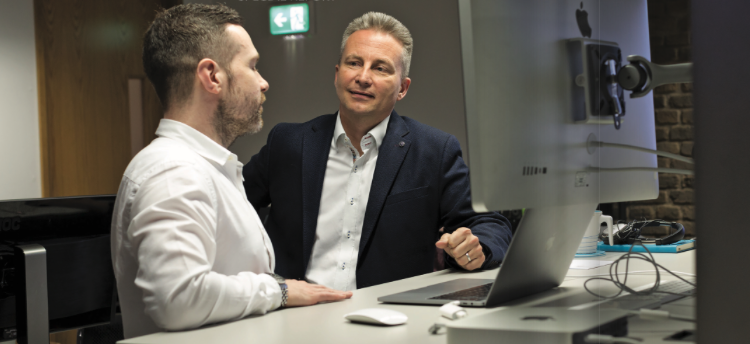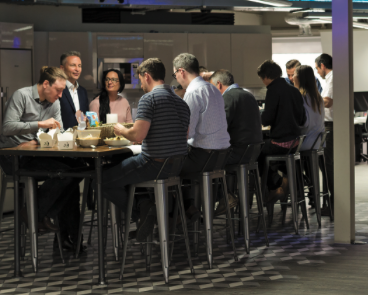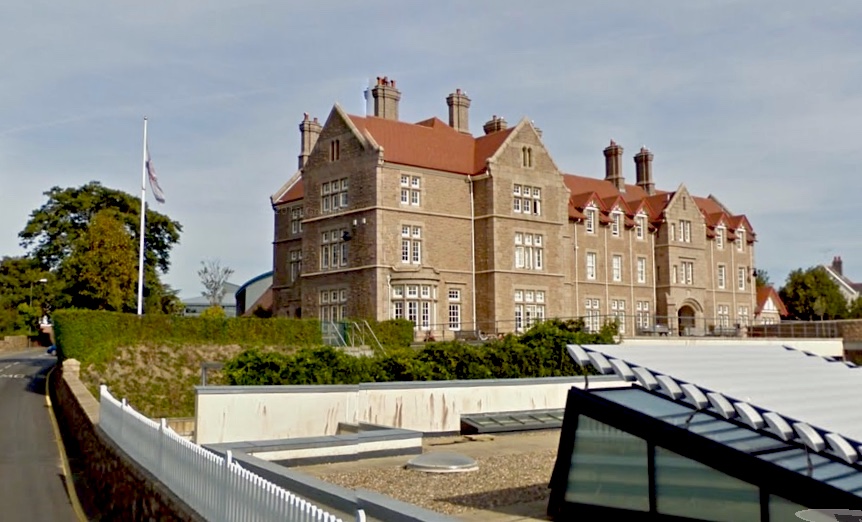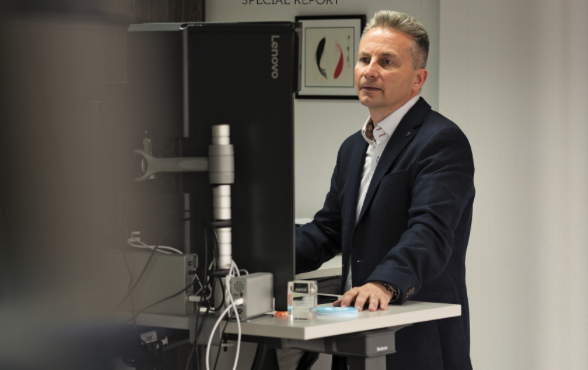
Hot off the back of the Cambridge Analytica revelations – a scandal that saw the personal data of up to 87 million people harvested and exposed to a Trump campaign researcher - the recent deposition of Facebook CEO Mark Zuckerberg marked the beginning of a global attitude shift towards the entries internet users make daily into their digital scrapbooks.
Significant though it was, the line of questioning of a number of octogenarian panellists occasionally made the hearing appear more akin to a teen reluctantly forced to explain a new piece of technology to their grandparents.
But while the digital dinosaurs’ failure to grasp social media sparked ridicule on the very platforms that eluded them, their innocent queries in fact got to the heart of the issue far better than more intense probing could. “Mr Zuckerberg, would you be comfortable sharing with us the name of the hotel you stayed in last night?... If you’ve messaged anyone this week, would you share with us the names of the people you’ve messaged?” one probed. The CEO’s hesitant “no” to both highlighted exactly why ‘data’ is fast becoming a dirty word.
However, it doesn’t have to be that way. If done right, harnessing and analysing data can have huge benefits across the realms of finance, retail and even health. Express met Julian Box, CEO and founder of Calligo, who is building a business around looking after people’s data.
A patient comes to a doctor with a lump. Of course, it could just be a cyst, a vascular bulge or evidence of a metabolic condition... or there’s the other option. It’s hard to tell from sight alone, and it’s in the patient’s best interest to find out fast – just in case. Fortunately, there’s a way to do so in just seconds. They can take a scan and compare it against a national database of millions of others, which, combined with their expertise, would allow them to draw conclusions in a fraction of the time it would normally. This is the future of health.

Pictured: Using anonymised data to improve health services is very much possible now, says Julian Box.
Well, actually, it isn’t. Using anonymised data to improve services is very much possible now, according to Julian Box, CEO and founder of Calligo.“In health, the key information you’re comparing is not people’s names and data. If it’s a scan of a spine or something, then you’ll be looking at millions of other spines – you don’t need to know who the person is.
“It’s not just that, but in lots of different areas you can find trends. In retail, for example, you can find patterns... Maybe you can find out that actually on a Tuesday afternoon a litre of milk is bought more often than a Wednesday afternoon. I’m trying to dumb it down there, but the point is that in this case there is no relationship to whether you’re an adult, a man, a female, child – you’re just looking at how many cartons of milk are sold and the pattern of it. “And there’s a lot of value understanding patterns within data. A lotof value,” Julian emphasises.
Working with businesses to tap into that “value” is something Calligo is putting a renewed focus on as it celebrates its seventh birthday. Having conquered ‘the Cloud’, the company is now streamlining its offering, concentrating on helping both “big brands” and local players across a range of sectors to sharpen their services by learning more about the customers that use them. Scrap clipboards and surveys, this is market research for the modern day featuring digital experts armed with databases and analytics software.

Pictured: Calligo helps clients maximise their use of data.
“If you can anonymise data, you might be able to reuse it in a different way. So it’s all about helping our clients maximise their use of that data. And that could be whether they’re just hosting it with us, or using our various services… this is all about maximising the potential your data has inside it.”
But doing so means following strict rules, which are set to get even stricter as the Europe-wide General Data Protection Regulation (GDPR) – the biggest data handling shake-up since the 90s - comes into force today. It’s no longer about taking care of stereotypical ‘sensitive’ info like credit card numbers – companies should be doing that already – but even the seemingly innocuous stuff. Mobile messages, smart watch run data – if it can identify you in any way, it’s not off the hook.
Calligo will be on hand to make the transition as smooth as possible for businesses, drawing upon their experiences of helping clients from beyond the EU work within privacy requirements. “A lot of what we’re doing now is helping businesses design privacy into their platforms. We have a new service that we’re launching called ‘Privacy Architecture’… and that is about helping businesses understand how privacy needs to be built into their processes, their applications, their software.

Pictured: Calligo's team is on hand to make the transition as smooth as possible for businesses as GDPR comes in force. (Glen Perotte)
“The way to describe us now is that we help our clients through their data journey, so that includes how they get hold of that data, then how they’re going to actually process that data, and we help them optimise and monetise in the most effective way.”
But while ‘Who’s watching?’-style headlines about questionable data acquisition practices might appear in the media almost weekly, Julian says businesses might be forgetting the equally important opposing principle: that data, like food, has a ‘use by’ date.
“It is going to become a really vital part of managing your data – you very rarely hear anyone talking about it, but it’s actually going to be one of the most critical parts. All data will have in effect an expiry date on it – whether that’s 10 years, 20 years, that doesn’t matter. It will still have a date and when that date hits, you are obliged to remove it and erase it.”
But some businesses aren’t taking those requirements as seriously as others, believing that holding the latest trendy acronym certification – ISO and SOC being the privacy indicators of the day – is enough to prove their dedication to data security. Julian disagrees. “We’re coming up against the big guys and they’re focusing on audits. But you can’t be ‘compliant’ in the traditional sense… with data privacy laws, they are a continuous thing.”

Pictured: Julian Box says that information stored on a server in a company’s own computer room doesn't mean it’s better protected.
Another common misconception is that information stored on a server in a company’s own computer room means it’s better protected. It might be a hard truth for IT departments, who may feel responsibility being “wrenched away from them”, but is simply part of moving forwards according to Julian. “When electricity first came out, everybody had a generator. No one would think twice about having a generator today.”
Instead, Calligo offer to take care of that storage for businesses with the added guarantee of ‘data residency’. The concept means that they can store their information under digital and physical lock and key in one of Calligo’s secure data centres. The infrastructure for each is highly restricted, meaning that clients have the benefit of knowing exactly where their information is being stored – and the comfort that the location itself is safe.
“When Cloud first came out, I said, ‘Oh, we’re going to focus on jurisdictional cloud.’ Most people thought I was an idiot. I believed way back then that people were going to care where their data was, who had access to it, what their laws are and so on.”

Pictured: Calligo can store information under digital and physical lock and key in one of their secure data centres.
And Julian was proven right. The company’s growth is easy evidence of that. Since Calligo was founded in 2012, it has grown to a headcount of around 110 global employees, with footholds in the Channel Islands, Singapore, Switzerland, Luxembourg, London, Bermuda, Toronto and Vancouver.
The spread means that Julian’s head is quite literally in the clouds “at least three quarters of the month”, as he flies off-island not only to check up on Calligo’s global teams, but to “on-board new clients” – a process that can take “a few weeks to 12 months.”
For an innately modern business, it’s a traditional approach, but one that Julian argues is important to establish trust in new relationships - even if that means travelling halfway around the world, which, coincidentally, he did the week before to meet a new Tokyo-based partner.
“We use video conferencing, we use all the latest technologies and stuff, but ultimately you still can’t beat sitting in front of people… I’m not a big believer in the traditional sales process of having lots and lots of salespeople. I believe in a consultative approach to working with clients.”

Pictured: The kitchen is a central facet of Calligo company culture.
With space grey walls bedecked with tessellating hexagons and lit above by glowing wire clouds, Calligo’s office space exudes futurism, but it too is linked with tradition. The desks and meeting rooms frame the kitchen - a central facet of Calligo company culture. It’s one that involves few rules – employees can make use of the table tennis facilities whenever they want – save for never dining al desko. The company provides breakfast each morning along with lunchtime buffets and Fridays bring a themed lunch treat in a bid to get people together and sharing ideas.
“The heart of the home is the kitchen, so why isn’t the heart of the office the kitchen?... It helps interaction, it helps team spirit and also great ideas happen when someone will talk about a challenge, then someone that might not even work in that area will say something… and they’re thinking about it in a completely different way.”
Such synergy and fruitful interactions are rewarded via the ‘Culture Code’, which sees employees across three regions rate each other monthly out of five – fives being “not a natural fit”, while ones are for those who really “transcended themselves.” Monthly winners are given £1,000, while the winner of the year gets £5,000. Of all zones, the ‘winner of the winner’ will see that sum doubled.
“This is not about how senior you are or how technically clever you are, but how people feel about working with you. Do you enjoy working with your colleague? We don’t have any fours of fives,” Julian smiles.

Pictured: Julian Box helped set up JCG's first Computer Science GCSE in a bid to promote STEM subjects among young women.
The idea was inspired by a similar system at Julian’s daughters’ school, Jersey College for Girls, where he is a governor. The relationship saw him help the school set up their first Computer Science GCSE in a bid to promote STEM subjects among young women.
While the “speed of change” is a challenge for teaching, Julian believes arming children with the “transferable” skill of programming is a priority. “Something as simple as the air conditioning unit – there is a piece of software running that unit… Software is so embedded into our lives now, it’s important that every child understands how that works.”
Julian’s own venture into tech started in his teens. The ‘dyslexic kid’ at school, he struggled to assemble words, but found his niche on a momentous day in the 1980s when his dad came home with a Sinclair ZX81. “That changed my whole perspective on what I wanted to do. I loved the fact I could make this machine do what I wanted it to do.”
It was a spark for a career that saw him leave school without A Levels for a ‘dream’ job as a programmer at Granada TV Rentals. From there, he rode the technology wave from servers to virtualisation and into the cloud, setting up many companies along the way.
“What virtualisation did was reduce your physical footprint – so instead of having 20, 30, 40 physical servers – you could get that down to two or three because you had virtual servers running on physical servers, not a physical server per server. And what Cloud does is take that scale another level where you don’t even own your own physical infrastructure.”

Pictured: Julian Box's venture into tech started in his teens.
That nose for newness has served him well - his last venture was US-headquartered Virtustream, which eventually sold for £1.2billion. With Calligo an evolving brand, Julian’s quest for fresh tech hasn’t stopped.
He jet sets to the US West Coast twice a year to scope out the latest trends, but it’s the fledgling “under the radar” products that really get him excited – ones hunted down at university roadshows, such as a recent AI event in Oxford University, often without websites, logos or even names.
But ever the entrepreneur, Julian is remaining tight-lipped about the next big thing on his agenda – apart from one thing. For one day this month, he won’t be running code, but the London Marathon… a tiring venture, perhaps, but days later he’ll be back on a plane. The hunt for innovation never sleeps.
You can read the latest edition of Connect here.
Comments
Comments on this story express the views of the commentator only, not Bailiwick Publishing. We are unable to guarantee the accuracy of any of those comments.